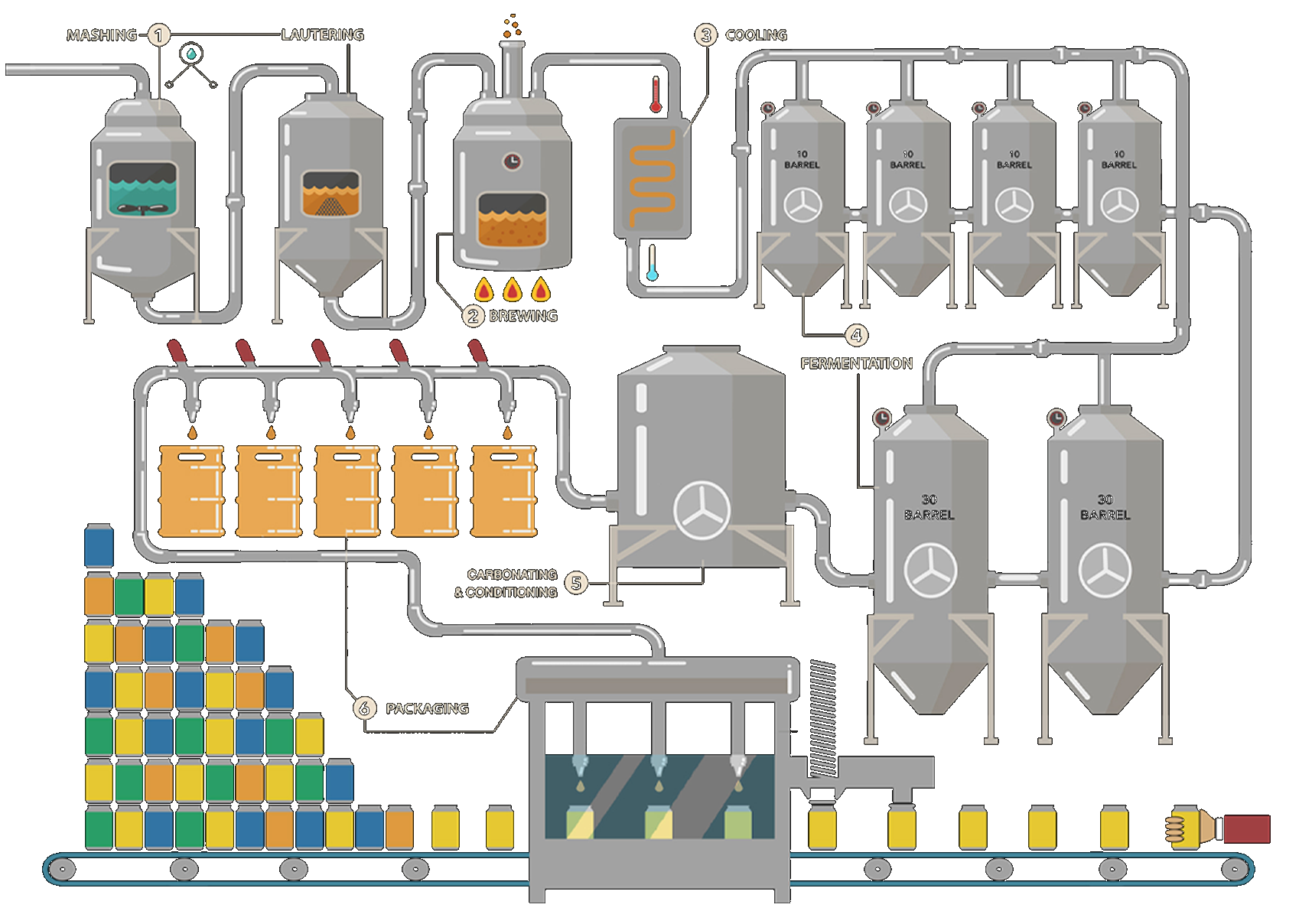Daily Specials
Check out Daily Food Specials
Learn MoreOur brewery is a 10-barrel brew house produced by Quality Tank Solutions in Wisconsin. By definition, a brewery is “a place where beer is made commercially.” But to us, it’s much more than that. It’s the place we spend hours crafting some of the best beers in the area, and we are proud to say that all our equipment is American made.
Each brew cycle can produce 310 gallons of beer, and cycles can be run up to 3 times each day. We currently have the fermentation capacity to brew up to 2,000 barrels a year. We produce 12oz. and 16oz. cans for sale all over Central Illinois.
If you’re wanting to try one (or more) of our beers but are outside Galesburg, you’re in luck! Our beers are currently available in the following counties: Bureau, Carroll, DeKalb, Fulton, Hancock, Henderson, Henry, Jo Daviess, Knox, La Salle, Lee, Marshall, McDonough, Mercer, Ogle, Peoria, Putnam, Rock Island, Schuyler, Stark, Stark, Stephenson, Tazewell, Warren, Whiteside, Winnebago and Woodford.

Mashing is the mixing of grain with hot water. This process re-hydrates the ingredients, changing the starch into fermentable sugars. After a certain amount of time, depending on the ingredients, the “mash out” begins. Here we raise the temperature of the mash to stop the conversion of starch to sugar. After sparging and lautering the grain with hot water, we begin to transfer the sweet mixture or wort to the boil kettle. Also called the vorlauf sequence.
Here, the wort is heated to a boil. Then, we add hops and sometimes other flavorings. After boil is complete, the wort is put into a whirlpool. Spinning the wort forms a cone-shaped trub pile in the middle of the brew kettle, separating the solids from the liquid.
The wort is then slowly pulled from the outside edge of brew kettle leaving the trub pile in intact inside the kettle. The wort then travels through the heat exchanger, cooling to the ideal temperature.
Completely transferred to the fermentor, we add yeast. Depending on the style of beer, different strains of yeast are used. This is where Ales and Laugers differ. Laugers ferment at colder temperatures that make for a slower fermentation time. Where as Ales will finish much faster depending on the alcohol content. After close monitoring during fermentation, we cool it to 33°, making the yeast fall to the bottom of the fermentor to be harvested or dumped off.
Now it’s time to add the bubbles. Carbonation strongly effects the mouthfeel, flavor, aroma and appearance of the beer. Without carbonation, beer would be “flat” or dull and lifeless. Conditioning beer is easy. Just store it cold and carbonated while the last bit of unwanted flavors fall to the bottom of the vessel.
The beer is then packaged into kegs, bottles and cans. We have distributors that sell our beer locally and to the surrounding communities.

An Imperial Stout with caramel, cocoa and bourbon.
Pint - $3.50
Howler - $11